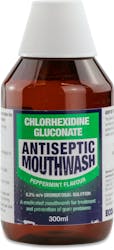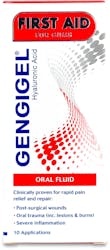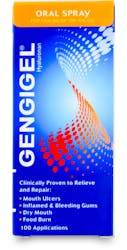Mouth Ulcer Treatment
Mouth ulcers, including canker sores, are small sores that develop within the mouth. They can be painful and make eating, drinking, and talking uncomfortable. Mouth ulcers are typically not contagious and usually go away after 1 to 2 weeks, even without treatment. However, if a mouth ulcer is large, extremely painful, or lasts for a long time without healing, it is important to seek the advice of a healthcare professional.
More about mouth ulcers
What causes mouth ulcers?
The exact cause of mouth ulcers is not known, but certain risk factors and triggers have been identified. These include minor mouth injuries from dental work, hard brushing, sports injury, or an accidental bite, dental braces, toothpaste or mouthwash that contains sodium lauryl sulfate (SLS), an allergic response to oral bacteria, bacterial, viral, or fungal infections in the mouth, sensitivities to acidic foods and beverages, certain nutrient deficiencies, hormonal changes, emotional stress, and lack of sleep. Mouth ulcers can also be a sign of more serious conditions such as celiac disease, inflammatory bowel disease (IBD), diabetes, HIV, and certain autoimmune diseases.
What are common symptoms of mouth ulcers?
Symptoms of mouth ulcers may vary, but they typically include painful sores that may be yellow, white, or red, sores on the inside of the mouth, such as on the tongue or the insides of the cheeks or lips, areas of redness surrounding the sores, and pain that worsens when eating, drinking, or talking. Canker sores are the most common type of mouth ulcer, with 20% of people having a canker sore at least once. There are three main types of canker sores: minor, major, and herpetiform.
How do I treat mouth ulcers?
Treatment options for mouth ulcers depend on the cause and severity of the ulcer. Over-the-counter pain relievers, topical creams, and gels can be used to alleviate pain and promote healing. We offer a number of creams such as Anbesol Adult Strength Gel, Bonjela Adult and MEDIJEL Gel. If the ulcer is caused by a specific trigger, such as a food sensitivity or toothpaste, avoiding that trigger can also help. In more severe cases, a healthcare professional may prescribe a stronger medication. It is also important to maintain good oral hygiene, including brushing and flossing regularly, to prevent infection and promote healing. Additionally, taking care of yourself emotionally and physically can be helpful in preventing mouth ulcers from recurring.












